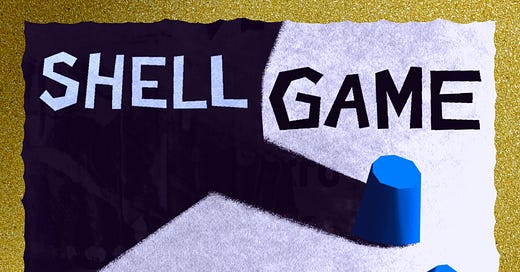It was another fun week in Shell Game world—after the Radiolab episode that dropped last Friday—with a very fun appearance on the show Pablo Torre Finds Out. (A podcast nominally about sports, but also about whatever Pablo is interested in; and in my view, soccer makes enough of an appearance in Shell Game to count as sports content.) Since it was taped in-person, in the studio, I was unable to engage in my usual shenanigans, sending or bringing my AI voice agent as a guest. So the producers and I cooked up another ruse: This time, I’d bring along my own AI clone of the host.
Working a couple of weeks in advance, I made an instant clone of Pablo’s voice—which was quite good, one of the better instant clones I’ve heard—then created a voice agent and attached it to a phone line. We schooled it on some of his favored catch phrases and digressions. And then, just as the interview was wrapping up, the producers patched in AI Pablo Torre. You can skip directly to that part of the interview here, if you’re inclined.
If you recall from Episode 6, making a professional clone requires the person whose voice is being cloned to speak a phrase, to confirm their identity and make sure their voice isn’t being cloned without consent. My dad has to do that in the episode. But an instant clone only requires that you check a box, indicating that you have the person’s consent to clone their voice. In this case, the PTFO producers affirmed for me that Pablo would love it and later approve, so I took that as sufficient to proceed with his clone. As you hear in the clip, he points out—jokingly, but still—that he did not in fact consent to it.
All of which is just another example of the ways cloning is going to create more and more muddled ethical landscapes. There’s nothing more than a check box stopping anyone from making a clone of any voice that’s publicly available.
Speaking of muddled ethical landscapes, some subscribers asked me to revisit some of my AI therapist conversations, and to possibly hear a full session. It turns out that Sonia, one of the VC-backed AI therapy companies, has released a new version since I’d last checked in. So I decided to update the knowledge base, and have AI Evan pay another visit. The full session audio is atop the post, for paying subscribers.
Listen to this episode with a 7-day free trial
Subscribe to Shell Game to listen to this post and get 7 days of free access to the full post archives.












